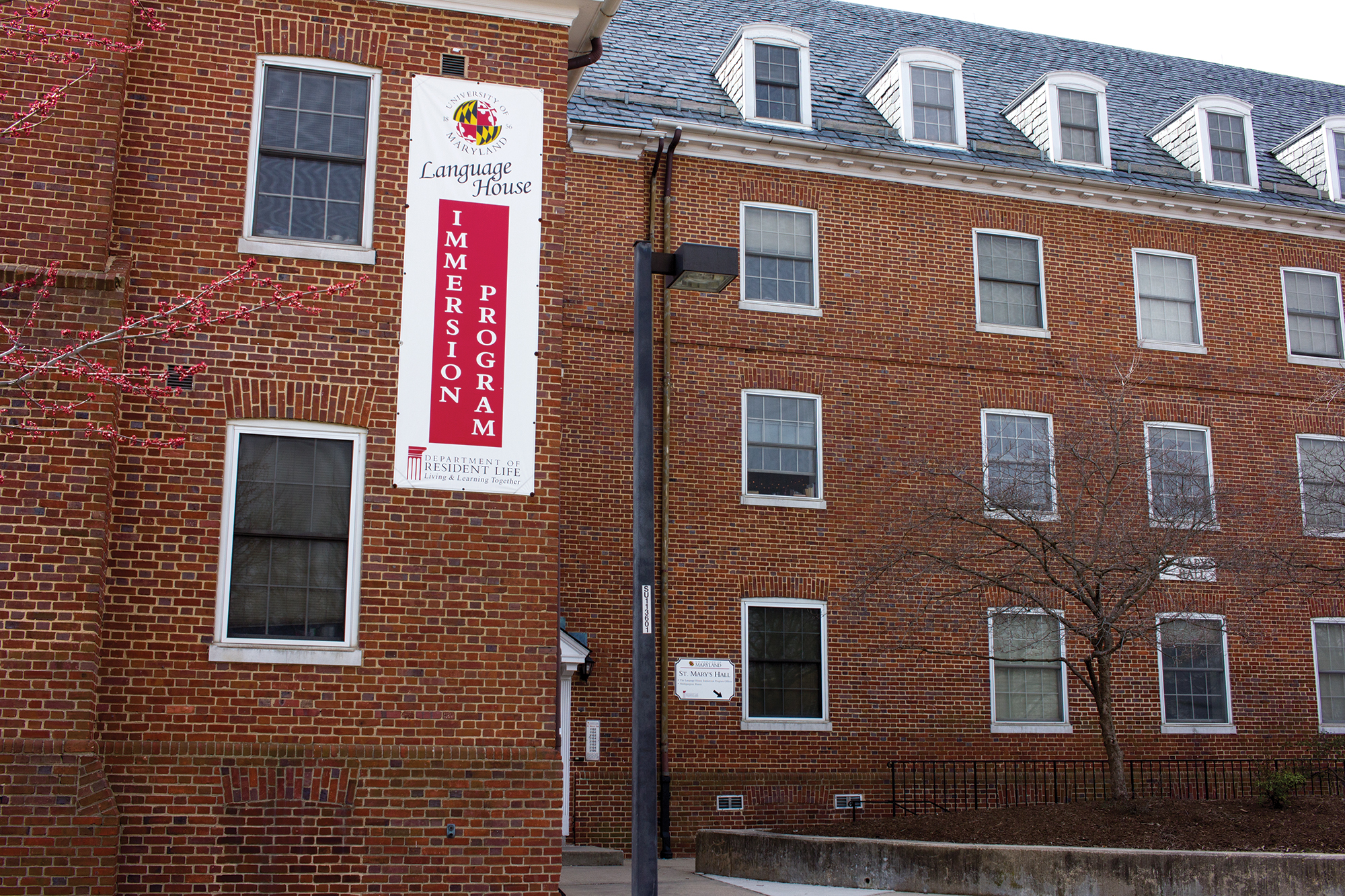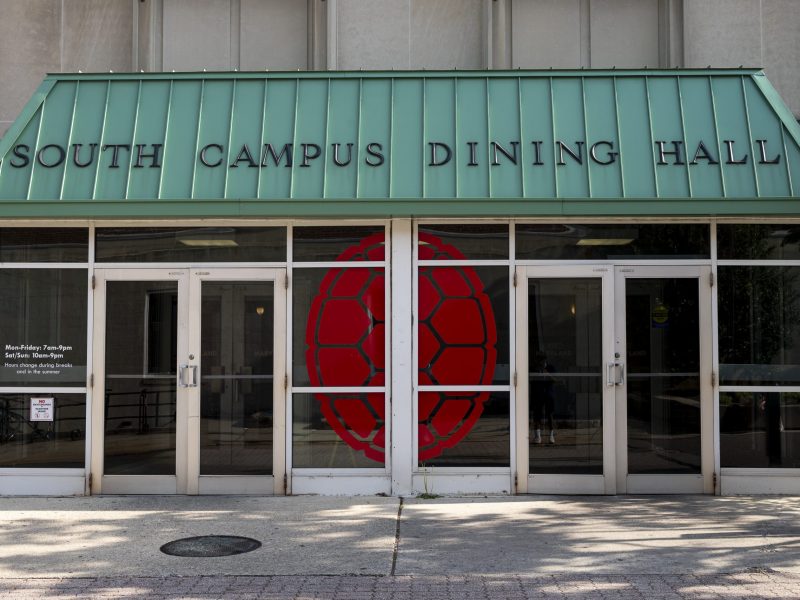Students, staff and alumni to join forces to address a budget gap for the University of Maryland’s oldest living-learning program, the Language House.
For the past few years, this program has been fully funded by the languages, literatures and cultures school. But with increases in housing costs and no designated portion of the budget allotted to the program, there is a need for more funds, said Mary Ellen Scullen, the school’s associate director of academic affairs.
Established in 1989, the program housed in St. Mary’s Hall encourages students to fully embrace a new language through an immersive experience led by mentors and apartment leaders. Students pledge to only speak their target language in their chosen clusters, of which there are 10: Arabic, Chinese, French, German, Hebrew, Italian, Japanese, Persian, Russian and Spanish.
“Nobody’s going to take away the Language House — what we’re trying to do is get it on a more solid footing so that we can keep it going and increase it,” Scullen said. “The Language House is a huge benefit to the [languages, literatures and cultures] school, but not only to the school; it’s a huge benefit to the campus.”
The lack of funds could most greatly affect mentors, who are native or near-native speakers and are usually graduate students, who live in each cluster — a group of apartments — to support students in their learning, said Phoenix Liu, Language House program director. These mentors are currently provided with a stipend that covers the cost of housing fees, which Liu said helps to recruit the best mentors.
“They are essential for the Language House,” she said. “It’s like a native tutor at home. … Our students are very motivated to learn the language; we want to provide the best environment.”
The school has submitted a proposal, which is under review, to the provost for more funds to better stabilize the program. The Language House is planning a gala and silent auction on April 21 in Samuel Riggs IV Alumni Center. Students are also teaming up for smaller fundraisers such as bake sales, which will benefit the program’s future.
“We’re trying to raise the profile and raise some more money so we’re not necessarily dependent on the funding streams because universities as a whole aren’t getting as much money as they used to,” Scullen said. “We’re trying to build a network of alums who give back.”
Junior Casey Garnett is part of a group of students working to fundraise for the program. She lives in the Spanish cluster and plans on joining the Japanese cluster after she travels abroad in Japan this summer.
“I like the language-learning atmosphere in the house, how everyone wants to learn at least one language, and most people know at least a couple languages,” the psychology major said. “We’re just really trying to make sure that we have our mentors, who are the big driving motivation; that really helps us improve our target language.”
Senior Cesar Velez-Peñaloza is one of the mentors who might see his benefits cut, but he said he’s more worried about how that could affect the house’s mission and success.
“My initial thought is we lose the mentor, the whole house gets lost, there’s no one there who can actually say, ‘I’m from this culture,’ unless someone has lived it,” the animal sciences and Spanish major said. “It will be a huge detriment to the house, and the program will start caving in.”
Velez-Peñaloza grew up in Colombia and has since found a second home at the Language House, not only for Spanish, but also for a community. He said he is angry that this community could be jeopardized in any way.
“It won’t be up to its high level where it is now,” he said. “It’s not only building a friendship and network in the house; it’s an extremely open place where you’re not being judged for anything — the Language House is the epitome of what this university stands for.”



